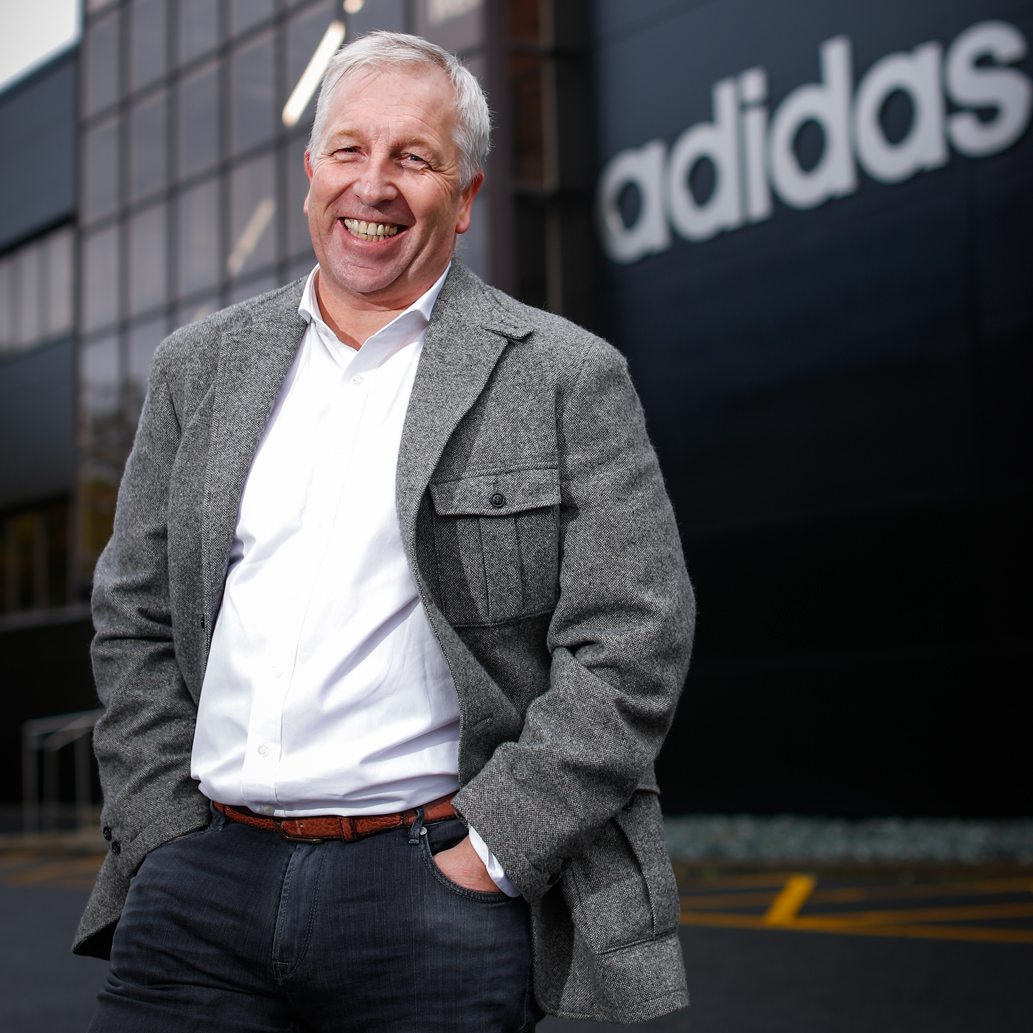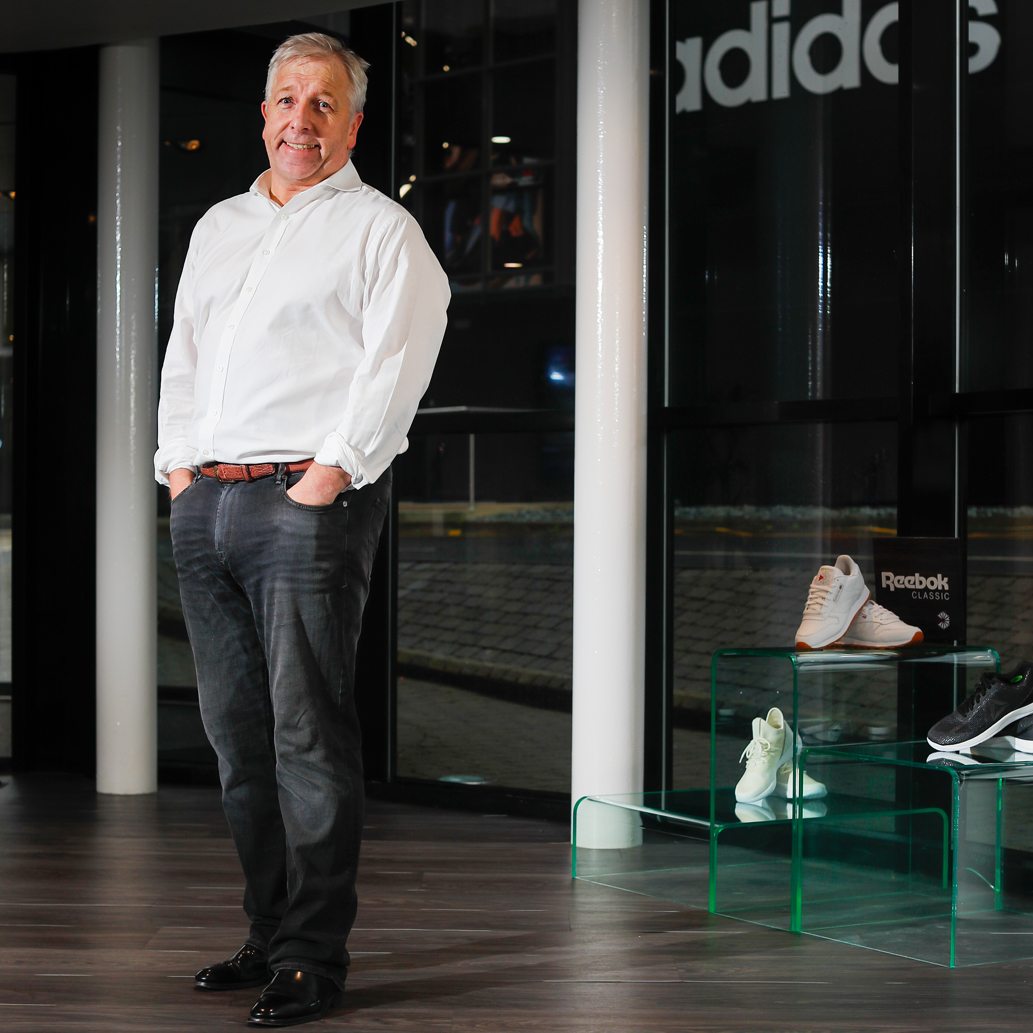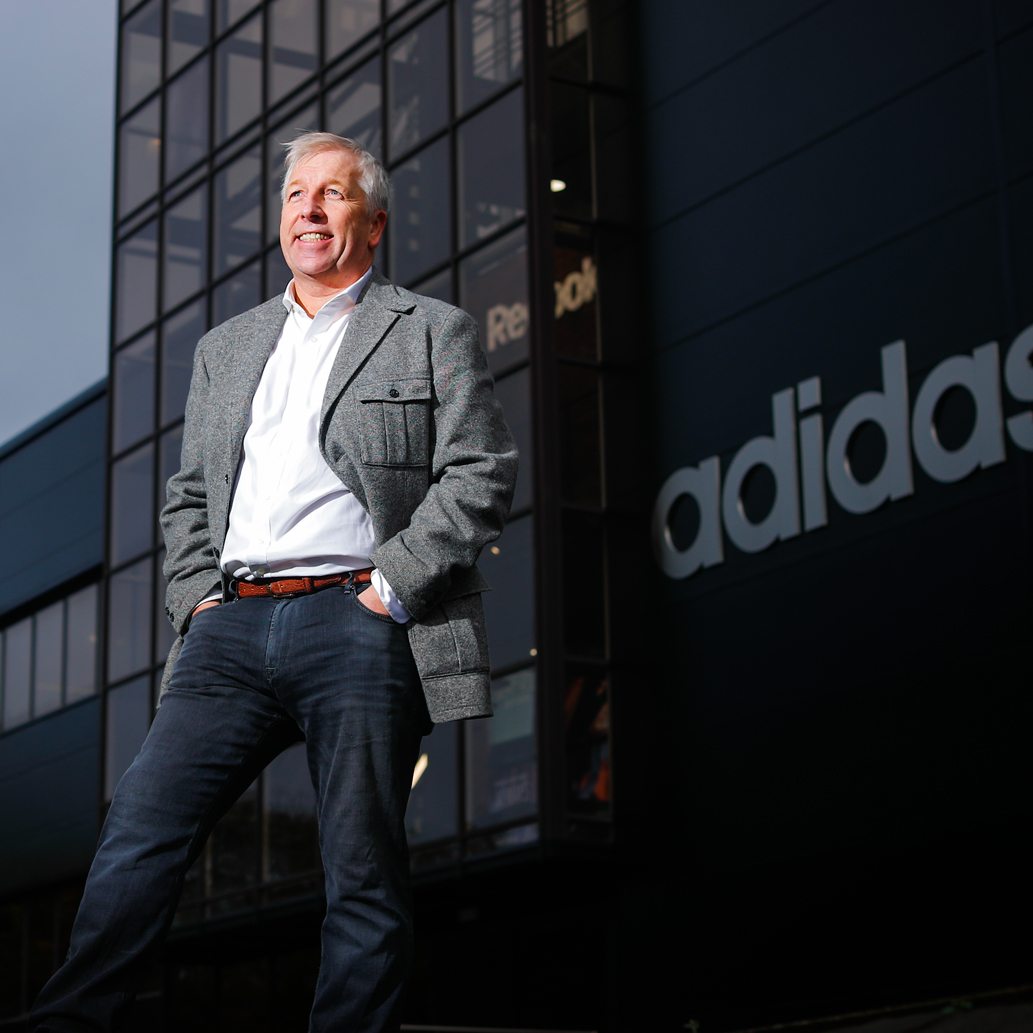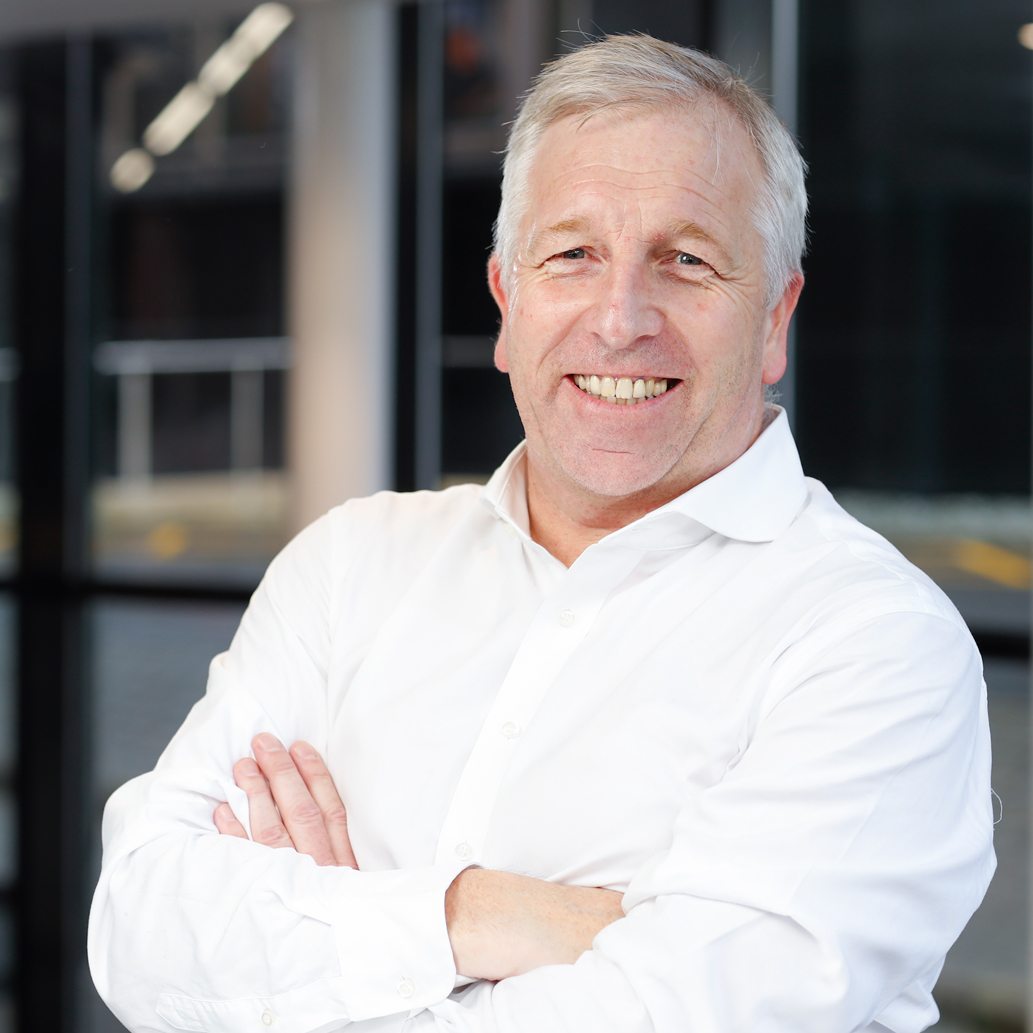Tony, tell us about your early life and how you found the path to a career in HR?
All through school, it was always about football – actually playing the game, most of the time – but also football in; science, history, biology and any which way I could reference and relate to it – to say I was obsessed would be an understatement. I was taking my O Levels in the summer of 1978 and my mother would say “poor Tony, he was revising all night, he’s so tired”, in actual fact, of course, the reference books were still in my school bag, I was watching the World Cup, hosted that year in Argentina. Fortunately for all concerned, I was decent enough to get an apprenticeship at Everton. It was a very disciplined environment, you would never go into the first team dressing room without being invited, you always had to be in on time and treat people with the utmost respect. We all had first team players to look after, be at their beck and call cleaning boots and preparing kit for match day. We didn’t earn much money and I would give my wages straight to my mother, but your players – the ones you ran around for – would generally reward for a good job done, such as a pair of brand new boots or a little bonus at Christmas.

So a professional football career was a realistic prospect?
It certainly was, until one cold morning in February, an opposing player hit me like an express train, resulting in an anterior cruciate ligament injury, the footballer’s nightmare and, back then, a real career-ender. And so it turned out for me, before mine had really got off the ground. They sat me down and said “that’s it son, you’d better find something else to do”. As hard as it was, I appreciated the directness, there’s no point beating about the bush. This was one of my first real-life lessons, only 18, and wondering how you will get over it, but it toughens you up. The person I most dreaded telling was my dad, he’d trained me from year dot, probably went into debt to make sure I had boots and strip. But mum and dad were thankfully pragmatic and practical and it was agreed that I wasn’t university material, and so joining a bank seemed like a sensible option. So I joined NatWest as a clerk in the early 1980s, a fetcher and carrier of post really, making tea for the bank manager, Mr Crabtree – no first names back then. I remember my first appraisal was pretty caustic, including in red, underlined, that I was “heavily accented” and needed to improve my diction, if I was serious about a career with the bank. Just imagine saying that to somebody nowadays?

How did your banking career progress from there? Did you start talking like Noel Coward?
Despite my “handicap” it was noticed that I integrated well with people and I was seconded to HQ in Manchester, in the personnel department. This was the first big eye-opener for me as I’d seen first-hand the importance of confidentiality, good processes, procedure and it showed me the nuts and bolts of the workplace and the rudiments of Personnel as it was then. I was definitely attuned to the job and I was promoted to a more senior role in the personnel function, although there was no sophistication to it, mainly working on grading structures, pensions and procedures. Around that time miners were on strike, industrial relations with the unions were rock bottom and Thatcher was already a hate figure of mythical proportions, I applied for a role at GEC which was merging with Plessey to become GPT. In terms of experiencing a wider gamut of issues, I couldn’t have joined at a better time for my development. The two organisations on a collision course each possessed very different cultures, and set against a backdrop of generally dreadful and unsolvable industrial relations, it was a massive learning curve for me.

It really was a time of unrest and intransience, but in many respects the nursery slopes for what was to become modern HR.
Agreed, case in point, Plesseys was in Liverpool and GEC was in Coventry, very different parts of the UK, very different mentalities and cultures. The managers were trying to integrate the employees, gathering large crowds together in the canteens and carrying out meta-planning exercises, which, to be honest, were largely counter-productive team-building exercises and only fuelled the general atmosphere of angst and unrest. I remember the first question on one of the meta plans was: “What do you want to get out of today”? Keen to comply I wrote; “to learn more about the business and be part of a successful company”. The guy next to me asked if I could take his slip of paper up and as I made my way through the throng, he’d written: “a free lunch and an early finish”. I think his answer was more representative of the majority. Time passed and as I started to find my feet, I really began to take a keen interest in employee relations and what makes a business tick. It was great to see the daily struggles for the managers trying to settle the workforce and it was fascinating to see how intransience and mistrust was so contagious. One thing which was clear to me personally, was the product – underground telecommunications – held little interest for me and so I set my mind on finding a job where I at least had some affinity with the product. I also made the decision that HR really was what I wanted to do.
I applied for a bigger HR role at William Bard, a clothes manufacturer for companies like Marks & Spencer’s with factories up and down the UK. I joined just as M&S was planning to manufacture off-shore, so all the factories had to close down and I was involved in the strategy to close the operational parts of the business. Some people had worked there all their lives, many had whole families working there. I was now experiencing the difficult side of HR, and I put all my energy into trying to be empathetic and put myself in the shoes of the people who were impacted. I also remembered the importance of being straight to-the-point – it was tough. William Baird had divisions in Sweden and Holland, and so my role became more international – my first experience of working abroad and dealing with Works Councils. Because the M&S story had been in the press and William Bard was seen as a progressive and ambitious company despite losing M&S’s business, I came onto a head-hunters radar, with a role that was described as “a sports organisation in the North West of England”. This was, of course, Adidas, at the beginning of 2001. I travelled to Adidas HQ and was interviewed by the MD, and his enthusiasm and directness won me over immediately. What he told me was so compelling I would have walked over hot coals to have this role. He said that there was practically no recognition for HR in the business. “The only time our people have anything to do with HR is when they’re in trouble or they have a question about their pension”. His brief to me was, “dismantle what is in place and re-build”.
Surely the dream job of any ambitious HR practitioner and a worldwide brand that you were so familiar with as a footballer. Were you daunted by the prospect, did you feel like you had the experience and strategic capability?
I had no time to ponder on my own deficiencies but I did take stock that I was effectively the architect of a new HR template. However, I was confident and excited that I could make it happen. We were rolling out new initiatives, many of which would be adopted by other parts of the Organisation. Issues such as; CSR, training and development and recognition. The HQ in Germany was interested in the things we were doing but we had to make sure it was complementing the way they were doing things over there. The business was in great shape, we were enjoying World Cups and European Championships and, at the time, we had significant change happening, much of which was HR related. At first there was little enthusiasm for the changes we wanted to put in and it was clear we had to win hearts and minds, lead by example and be role models. We introduced “adiOscars” which was an award for great work. There was some reluctance at first, until everyone started to see the winners and the buzz of enthusiasm it generated amongst the troops. The HQ liked adiOscars and this was the start of a sort of conveyer belt of great HR that was channelled into the wider business. I’m particularly proud of our women’s development course, which was a big issue for adidas at the time, We struggled to get enough women into senior roles and put a programme together that addressed the issues that the women in our business were actually struggling with. Self-esteem, relationships with bosses and confidence to apply for more senior positions.
Trust is everything when bringing in new initiatives. It takes real bottle to keep trying when you're met with reluctance.
You have to be truly committed, dogmatic even, and I had developed a reputation as a creative forward thinker which sounds cool but often in business is not really helpful, particularly in an otherwise conservative HR organisation. But we were ahead of the game and I was certain we were on the right track, working hard on inclusion and diversity, ahead of the curve, and every time we made gains it just encouraged me to be more ambitious with stuff. You remember earlier I said that I related everything to football? I had the idea that we should have a culture similar to running a football club: For example at the start of the season, when clubs go out and make big signings and there’s a photo call with the new signing. So when people come on board – a new signing – they’re given a football kit with their name on it, and a photo call to announce their arrival. Their manager parades them around the business to meet people – it shouldn’t be HR. I didn’t see the Chelsea HR Manager posing for the press when they bought Morata. It was Conte, the Manager who did it. It really is their day, and it’s worked really well for people to feel immediately part of the team and aware of their surroundings. And it doesn’t stop there, like managing a key player, they quickly become part of a culture that is all about inclusion and fairness. The younger joiners of course love the attention and want to spread their “best first day ever” on social media. This has its plusses and minuses, they have boundless energy and new ideas, but the downside is, they all want to be MD a week on Thursday. We develop a pace so that people come in with their eyes open, and their natural inquisitiveness is given free reign, everybody knows what they have to do and why from day one, and we want people to be engaged, so that they know what’s going on in the business and know the part they can play from the off. Giving people an early sense of purpose is key. This typifies the personal and impactful relationships we build which, in a business with 60,000 employees is a neat capability. My current focus is to meet career ambitions with a practical reality, being able to move people about more effectively, in order to really stretch the talent, enable them to believe that there is real progression possibilities, in order to keep great talent in the business for as long as possible. We’re developing a reputation for being a good breeding ground for talent which is a very compelling prospect.
Youngsters now are empowered and confident of their skills you have to keep them occupied.
and hammering square pegs into round holes. This boils down to real inclusion and diversity, really looking at succession planning as being a route to develop experiences, as opposed to filling dead men’s/women’s shoes. We are at a stage now where succession is organic, we rarely have to recruit externally to fill a role. We’re also really tuned into the importance of our role in supporting good mental health; we have a wellness strategy, a whole wellness facility with gyms and psychologists. You know, an employer can throw money at a problem, but if it’s something that isn’t trusted or is seen as lip-service, you may as well pour the money down the drain. We try to provide really positive outcomes, and encourage the Managers in our business to do more. Then there are the relationships of managers and the people they manage. In football, before you can manage a club, you have to earn you coaching badges. Our employees who have aspirations to be a manager have to earn their coaching badges. They attend programmes and workshops on leadership, inclusion & diversity and a programme called Spot the Signs, where we teach managers about the issues of mental health, show them how to look for early signs and we are more aware now about the pressures people are under, both in work and at home than ever before.
For me, if people are still uneasy and unsure about going to their boss with a problem, then all the policies and process in the world won’t change that, that’s down to something much deeper. Take paternity leave, men particularly are afraid to step away from work for fear of falling behind. Will that change in time? Only if it begins to show positive role modelling. Spot the Sign has been really useful to us, because, for the fifth year we have won Britain’s Most Healthy Company award, which is a great relief as we’ve really put our money where our mouth is on this crucial element. We also have a team called Dive-in, which champions diversity and inclusion, made up of people from different backgrounds and the team is really setting the pace. The answer to the skills drought is opportunity in diversity and inclusion and the new generations are very vocal about what they want, people don’t ask for these things they demand it and we have to make sure we provide.
Adidas made the headlines when it was announced it was bringing manufacturing back to Germany from India. This positive news was somewhat tempered by the fact that the products would be built by more robots and AI. What do you think will be the pros and cons as this inevitably becomes a part of the workplace?
There will be impacts that’s for sure, and it is incumbent on employers to turn the inevitable future into a positive for people’s lives and quality of work. There are two sides to every story of course, but where AI has been introduced to take on repetitive manufacturing roles in the past, there is real evidence that other opportunities open up for people to use their “human skills and initiatives” in more effective ways. I’m convinced this is the way forward, and in terms of commercial competitiveness, there really is no option than to be right at the cutting curve of technology, for a business such as ours. In terms of HR, for example, I’ve seen real change in delivery and I’ve always championed progression in our HR delivery, it is the only way to go and I’m proud to say we’ve been ahead of the game with much of our services, such as quicker, more streamlined approaches to appraisals and real time engagement and supporting people working remotely. The days of clocking in, in the traditional sense, is history. One thing’s for sure, technology will dictate the pace of change and it will continue to be fast, and so there’s no time for procrastination. I speak to people who have a different view on this, but judging by the outcomes of tech intervention, you would have to be nuts not to embrace every advantage it brings. My one word of warning is, you lose cohesion if you go overboard with flexibility. People bang the drum for remote working, but there is still a place for eye contact and collaboration – I am and always have been a team player. I know there will be a time when people are interviewed by a robot, but if you consider such inevitabilities as a threat, or try to short circuit change, you will be left behind.
Greater autonomy and self-responsibility finds people out quicker if they are not engaged don't you think?
There is a real mix of perspectives about remote working which suggests that, even it is the panacea to work/life balance, there’s something not quite right about the way it is being managed. The way we support people may seem more paternalistic than what is being envisaged as the future of work, but we have a real family vibe in the business which is culturally crucial. I’m not into measuring degrees of happiness – I’d much prefer them to be happy and engaged.
In this maelstrom of disruption and change what do you see as important for the future role of HR?
In my experience, I’ve seen HR play it safe and let circumstance dictate the pace. To be truly effective, HR best serves by being the people champion… as well as the confidante and sounding board for the MD. You must never underestimate the importance of people – sure you are unlikely to have a robot walk out in dispute over toilet breaks, but you will never be able to replicate the value of human innovation. HR has to be pivotal to the management structure with a natural the affinity with the FD, and the FD has to trust HR, that is a very important two-way street in my experience. There are thousands of articles that point to HR’s lack of commercial prowess, and I find that baffling, how can anyone hold their own in the boardroom with a lack of commercial awareness?
Have you got any regrets about how your life has panned out?
I wish I’d seen that guy charging at me on that February morning a bit quicker but apart from that, I have no regrets and I have the same level of enthusiasm and passion today as when I walked through the doors at adidas 17 years ago. I don’t think many people could say the same.












